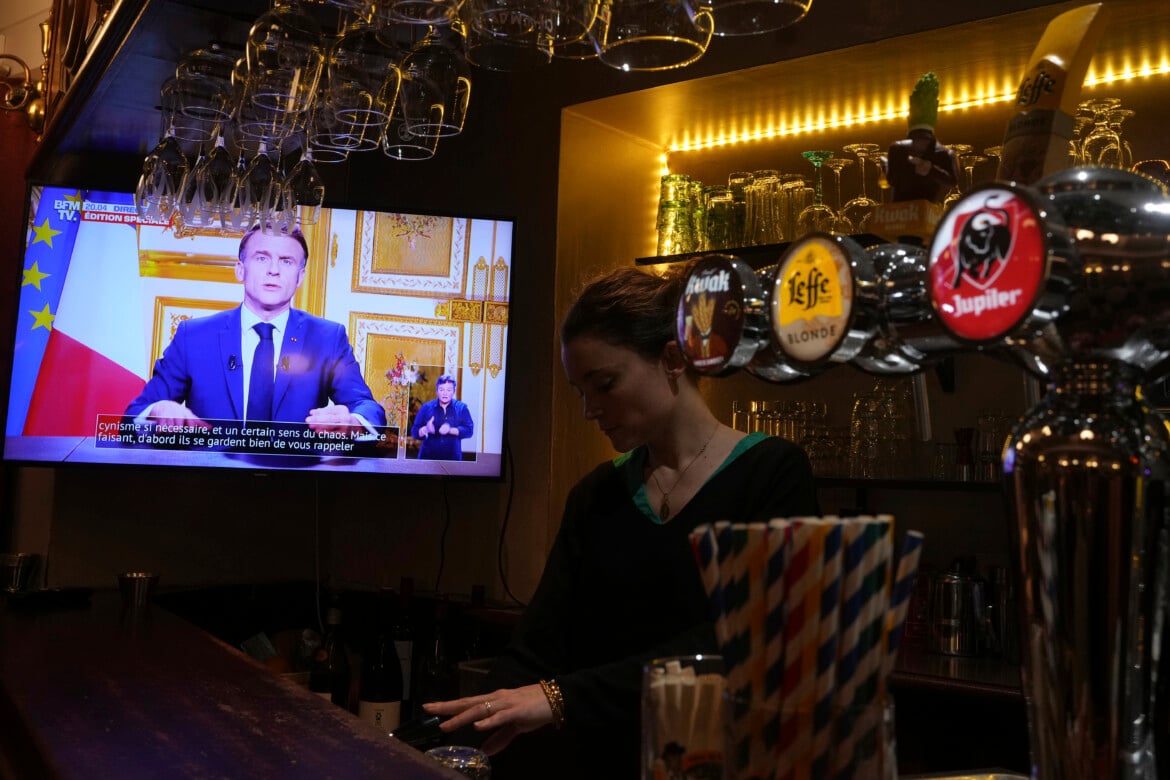Commentary
Prisoners of a president in decline
Casual comments about controlling the Muslim population of France are a symptom of that country’s political malaise — a pathology that is spreading in Italy as well.

Sometimes one detail can shed light on everything. For instance, when watching the debate between two philosophers, Pierre-Henri Tavoillot and Pierre Manent, organized by the Le Figaro newspaper as France faces a new political crisis (or rather, the new phase of a crisis that began when Macron decided to dissolve the National Assembly and call new elections in June). Tavoillot and Manent were invited to discuss the topic of France “between fatigue and civil war” and to answer the question “Can we still live together?”
Both are on the right. Tavoillot is close to the National Rally, while Manent, the older and more well-known abroad, is a liberal conservative. But there is an underlying harmony between the two, especially when it comes to immigrants, which makes it clear just how much things have changed in recent decades in France, and beyond, and how much the discourse of the xenophobic right has made inroads even in the circles of “moderate” liberalism.
During the debate, Manent said that “decisions will have to be made about the whole of the Muslims in France,” because their numbers cannot be left to grow “at an endless pace.” He added that failure to act on this issue could lead to “a dramatic situation that no version of secularism puts us in a position to deal with.” It is worth noting that the person saying these things is not a demagogue or a populist, but an academic respected outside of France, whose books are also translated into Italian, and who weighs his words carefully when he speaks.
This small detail from this debate is, in my view, a symptom of France's political malaise – a pathology that is spreading in Italy as well.
In Paris, the right narrowly lost the elections, but has managed to impose its hegemony on public discourse, and, as a result, to dictate the agenda on most of the issues that define its identity: nationalism, xenophobia and welfare chauvinism are fully legitimized in public discourse, and they are redrawing the boundaries of the political imagination. Manent is a “moderate,” so he won’t say how many Muslims it would be “reasonable” to keep in France, but the mere fact that someone like him is asking the question, albeit in pained tones, opens up the possibility for those who have no such qualms to give political substance to that scenario.
By dissolving the National Assembly in June, Macron hoped to once again succeed in forcing the French to choose between the Le Pen right and the neoliberal right, “moderate” and “respectable” because it would stay within the boundaries of traditional republican values of secularism and social solidarity. The move had paid off for him in the presidential election: split the left, coast on the support for the “Republican front,” and present himself as the savior of the Republic. But this time, the tactic didn’t work. Voters on the left understandably chose to vote for candidates more congenial to their own values – those on the lists of the New Popular Front – rather than reward a “center” that appeared increasingly dominated by the right, even though formally opposed to it. Few were willing to believe that the Macronists were a credible obstacle to a right-wing victory, even among the Socialists, who are the least radical force in the Popular Front. They didn’t believe it even when they voted for them, in constituencies where a strategic vote was necessary to bar the way for Le Pen's candidates. After he came last in the electoral contest, Macron refused to acknowledge defeat and start a constructive dialogue with the left.
On the contrary, he did everything he could to divide the Popular Front. First by prolonging the negotiations for the formation of the government to the point of exhaustion, then by the surprise move of giving the mandate to Barnier, and finally, in recent days, after the fall of the minority centrist government he had set up, by attempting to entice the Socialists into a new majority.
It’s not impossible that this maneuver will succeed, because there is a part of the Socialist Party that has chafed under the cohabitation with La France Insoumise and the other forces that formed the New Popular Front junta. In what increasingly looks like the twilight of the Fifth Republic, the French Socialists feel they are at risk of extinction, and this might push them into a political gamble.
Whichever way things turn out, it’s hard to imagine that a new centrist government, albeit with some tinge of technocratic socialism, would have the ability to deal with France's malaise, arising from dispiriting economic prospects, disquiet about the future of the middle class, unease about a collective identity in crisis. Because of its peculiar constitution, French democracy is captive to a president in decline who behaves like a gambler who has squandered his wealth by raising the stakes over and over.
Meanwhile, Le Pen lies in wait. There’s no doubt that she must be concerned about the judicial investigation involving her, but she knows that time is most likely on her side, and that the moral and intellectual vacuum created by Macron will have to be filled somehow.
Originally published at https://ilmanifesto.it/prigionieri-di-un-presidente-in-declino on 2024-12-08
